The Time Machine — EN
XI
The Palace of Green Porcelain
“I found the Palace of Green Porcelain, when we approached it about noon, deserted and falling into ruin. Only ragged vestiges of glass remained in its windows, and great sheets of the green facing had fallen away from the corroded metallic framework. It lay very high upon a turfy down, and looking north-eastward before I entered it, I was surprised to see a large estuary, or even creek, where I judged Wandsworth and Battersea must once have been. I thought then – though I never followed up the thought – of what might have happened, or might be happening, to the living things in the sea.
“The material of the Palace proved on examination to be indeed porcelain, and along the face of it I saw an inscription in some unknown character. I thought, rather foolishly, that Weena might help me to interpret this, but I only learned that the bare idea of writing had never entered her head. She always seemed to me, I fancy, more human than she was, perhaps because her affection was so human.
“Within the big valves of the door – which were open and broken – we found, instead of the customary hall, a long gallery lit by many side windows. At the first glance I was reminded of a museum. The tiled floor was thick with dust, and a remarkable array of miscellaneous objects was shrouded in the same grey covering. Then I perceived, standing strange and gaunt in the centre of the hall, what was clearly the lower part of a huge skeleton. I recognized by the oblique feet that it was some extinct creature after the fashion of the Megatherium. The skull and the upper bones lay beside it in the thick dust, and in one place, where rain-water had dropped through a leak in the roof, the thing itself had been worn away. Further in the gallery was the huge skeleton barrel of a Brontosaurus. My museum hypothesis was confirmed. Going towards the side I found what appeared to be sloping shelves, and clearing away the thick dust, I found the old familiar glass cases of our own time. But they must have been air-tight to judge from the fair preservation of some of their contents.
“Clearly we stood among the ruins of some latter-day South Kensington! Here, apparently, was the Palaeontological Section, and a very splendid array of fossils it must have been, though the inevitable process of decay that had been staved off for a time, and had, through the extinction of bacteria and fungi, lost ninety-nine hundredths of its force, was nevertheless, with extreme sureness if with extreme slowness at work again upon all its treasures. Here and there I found traces of the little people in the shape of rare fossils broken to pieces or threaded in strings upon reeds. And the cases had in some instances been bodily removed – by the Morlocks as I judged. The place was very silent. The thick dust deadened our footsteps. Weena, who had been rolling a sea urchin down the sloping glass of a case, presently came, as I stared about me, and very quietly took my hand and stood beside me.
“And at first I was so much surprised by this ancient monument of an intellectual age, that I gave no thought to the possibilities it presented. Even my preoccupation about the Time Machine receded a little from my mind.
“To judge from the size of the place, this Palace of Green Porcelain had a great deal more in it than a Gallery of Palaeontology; possibly historical galleries; it might be, even a library! To me, at least in my present circumstances, these would be vastly more interesting than this spectacle of oldtime geology in decay. Exploring, I found another short gallery running transversely to the first. This appeared to be devoted to minerals, and the sight of a block of sulphur set my mind running on gunpowder. But I could find no saltpeter; indeed, no nitrates of any kind. Doubtless they had deliquesced ages ago. Yet the sulphur hung in my mind, and set up a train of thinking. As for the rest of the contents of that gallery, though on the whole they were the best preserved of all I saw, I had little interest. I am no specialist in mineralogy, and I went on down a very ruinous aisle running parallel to the first hall I had entered. Apparently this section had been devoted to natural history, but everything had long since passed out of recognition. A few shrivelled and blackened vestiges of what had once been stuffed animals, desiccated mummies in jars that had once held spirit, a brown dust of departed plants: that was all! I was sorry for that, because I should have been glad to trace the patent readjustments by which the conquest of animated nature had been attained. Then we came to a gallery of simply colossal proportions, but singularly ill-lit, the floor of it running downward at a slight angle from the end at which I entered. At intervals white globes hung from the ceiling – many of them cracked and smashed – which suggested that originally the place had been artificially lit. Here I was more in my element, for rising on either side of me were the huge bulks of big machines, all greatly corroded and many broken down, but some still fairly complete. You know I have a certain weakness for mechanism, and I was inclined to linger among these; the more so as for the most part they had the interest of puzzles, and I could make only the vaguest guesses at what they were for. I fancied that if I could solve their puzzles I should find myself in possession of powers that might be of use against the Morlocks.
“Suddenly Weena came very close to my side. So suddenly that she startled me. Had it not been for her I do not think I should have noticed that the floor of the gallery sloped at all. The end I had come in at was quite above ground, and was lit by rare slit-like windows. As you went down the length, the ground came up against these windows, until at last* there was a pit like the “area” of a London house before each, and only a narrow line of daylight at the top. I went slowly along, puzzling about the machines, and had been too intent upon them to notice the gradual diminution of the light, until Weena’s increasing apprehensions drew my attention. Then I saw that the gallery ran down at last into a thick darkness. I hesitated, and then, as I looked round me, I saw that the dust was less abundant and its surface less even. Further away towards the dimness, it appeared to be broken by a number of small narrow footprints. My sense of the immediate presence of the Morlocks revived at that. I felt that I was wasting my time in the academic examination of machinery. I called to mind that it was already far advanced in the afternoon, and that I had still no weapon, no refuge, and no means of making a fire. And then down in the remote blackness of the gallery I heard a peculiar pattering, and the same odd noises I had heard down the well.
*It may be, of course, that the floor did not slope, but that the museum was built into the side of a hill. – ed.
“I took Weena’s hand. Then, struck with a sudden idea, I left her and turned to a machine from which projected a lever not unlike those in a signal-box. Clambering upon the stand, and grasping this lever in my hands, I put all my weight upon it sideways. Suddenly Weena, deserted in the central aisle, began to whimper. I had judged the strength of the lever pretty correctly, for it snapped after a minute’s strain, and I rejoined her with a mace in my hand more than sufficient, I judged, for any Morlock skull I might encounter. And I longed very much to kill a Morlock or so. Very inhuman, you may think, to want to go killing one’s own descendants! But it was impossible, somehow, to feel any humanity in the things. Only my disinclination to leave Weena, and a persuasion that if I began to slake my thirst for murder my Time Machine might suffer, restrained me from going straight down the gallery and killing the brutes I heard.
“Well, mace in one hand and Weena in the other, I went out of that gallery and into another and still larger one, which at the first glance reminded me of a military chapel hung with tattered flags. The brown and charred rags that hung from the sides of it, I presently recognized as the decaying vestiges of books.
They had long since dropped to pieces, and every semblance of print had left them. But here and there were warped boards and cracked metallic clasps that told the tale well enough. Had I been a literary man I might, perhaps, have moralized upon the futility of all ambition. But as it was, the thing that struck me with keenest force was the enormous waste of labour to which this sombre wilderness of rotting paper testified. At the time I will confess that I thought chiefly of the Philosophical Transactions and my own seventeen papers upon physical optics.
“Then, going up a broad staircase, we came to what may once have been a gallery of technical chemistry. And here I had not a little hope of useful discoveries. Except at one end where the roof had collapsed, this gallery was well preserved. I went eagerly to every unbroken case. And at last, in one of the really air-tight cases, I found a box of matches. Very eagerly I tried them. They were perfectly good. They were not even damp. I turned to Weena. “Dance,” I cried to her in her own tongue.
For now I had a weapon indeed against the horrible creatures we feared. And so, in that derelict museum, upon the thick soft carpeting of dust, to Weena’s huge delight, I solemnly performed a kind of composite dance, whistling The Land of the Leal as cheerfully as I could. In part it was a modest cancan, in part a step dance, in part a skirt-dance (so far as my tail-coat permitted), and in part original. For I am naturally inventive, as you know.
“Now, I still think that for this box of matches to have escaped the wear of time for immemorial years was a most strange, as for me it was a most fortunate thing. Yet, oddly enough, I found a far unlikelier substance, and that was camphor. I found it in a sealed jar, that by chance, I suppose, had been really hermetically sealed. I fancied at first that it was paraffin wax, and smashed the glass accordingly. But the odour of camphor was unmistakable. In the universal decay this volatile substance had chanced to survive, perhaps through many thousands of centuries. It reminded me of a sepia painting I had once seen done from the ink of a fossil Belemnite that must have perished and become fossilized millions of years ago. I was about to throw it away, but I remembered that it was inflammable and burned with a good bright flame – was, in fact, an excellent candle – and I put it in my pocket. I found no explosives, however, nor any means of breaking down the bronze doors. As yet my iron crowbar was the most helpful thing I had chanced upon. Nevertheless I left that gallery greatly elated.
“I cannot tell you all the story of that long afternoon. It would require a great effort of memory to recall my explorations in at all the proper order. I remember a long gallery of rusting stands of arms, and how I hesitated between my crowbar and a hatchet or a sword. I could not carry both, however, and my bar of iron promised best against the bronze gates. There were numbers of guns, pistols, and rifles. The most were masses of rust, but many were of some new metal, and still fairly sound. But any cartridges or powder there may once have been had rotted into dust. One corner I saw was charred and shattered; perhaps, I thought, by an explosion among the specimens. In another place was a vast array of idols – Polynesian, Mexican, Grecian, Phoenician, every country on earth I should think. And here, yielding to an irresistible impulse, I wrote my name upon the nose of a steatite monster from South America that particularly took my fancy.
“As the evening drew on, my interest waned. I went through gallery after gallery, dusty, silent, often ruinous, the exhibits sometimes mere heaps of rust and lignite, sometimes fresher. In one place I suddenly found myself near the model of a tin-mine, and then by the merest accident I discovered, in an air-tight case, two dynamite cartridges! I shouted “Eureka!” and smashed the case with joy. Then came a doubt. I hesitated. Then, selecting a little side gallery, I made my essay. I never felt such a disappointment as I did in waiting five, ten, fifteen minutes for an explosion that never came. Of course the things were dummies, as I might have guessed from their presence. I really believe that had they not been so, I should have rushed off incontinently and blown Sphinx, bronze doors, and (as it proved) my chances of finding the Time Machine, all together into nonexistence.
“It was after that, I think, that we came to a little open court within the palace. It was turfed, and had three fruit-trees. So we rested and refreshed ourselves. Towards sunset I began to consider our position. Night was creeping upon us, and my inaccessible hiding-place had still to be found. But that troubled me very little now. I had in my possession a thing that was, perhaps, the best of all defences against the Morlocks – I had matches! I had the camphor in my pocket, too, if a blaze were needed. It seemed to me that the best thing we could do would be to pass the night in the open, protected by a fire. In the morning there was the getting of the Time Machine. Towards that, as yet, I had only my iron mace. But now, with my growing knowledge, I felt very differently towards those bronze doors. Up to this, I had refrained from forcing them, largely because of the mystery on the other side. They had never impressed me as being very strong, and I hoped to find my bar of iron not altogether inadequate for the work.
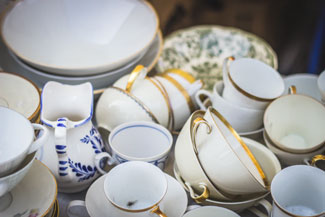 porcelain ˈpɔːsəlɪn n A hard shiny white substance that is used for making expensive plates, cups etc: china
porcelain ˈpɔːsəlɪn n A hard shiny white substance that is used for making expensive plates, cups etc: china
to fall into ruin ⇒ To go rack and ruin.
ragged ˈrægɪd adv Torn or worn to tatters.
vestige ˈvɛstɪʤ n Remnant that indicates the former presence of something: trace, remains
facing ˈfeɪsɪŋ n An outer coating applied to a surface for protection or decoration.
corrode kəˈrəʊd v To consume gradually, as by chemical reaction, friction, etc: wear, wear away, gnaw, erode, fret
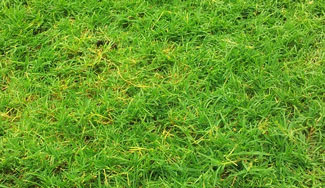 turfy ˈtɜːfi adj Of, covered with, or resembling a surface that consists of soil with grass on top: soddy
turfy ˈtɜːfi adj Of, covered with, or resembling a surface that consists of soil with grass on top: soddy
down ⇒ An expanse of rolling, treeless upland, grassy and with little soil.
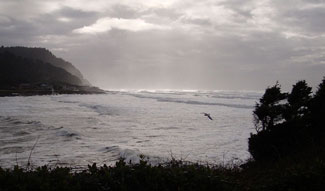 estuary ˈɛstjʊəri n The part of the wide lower course of a river where its current is met by the tides.
estuary ˈɛstjʊəri n The part of the wide lower course of a river where its current is met by the tides.
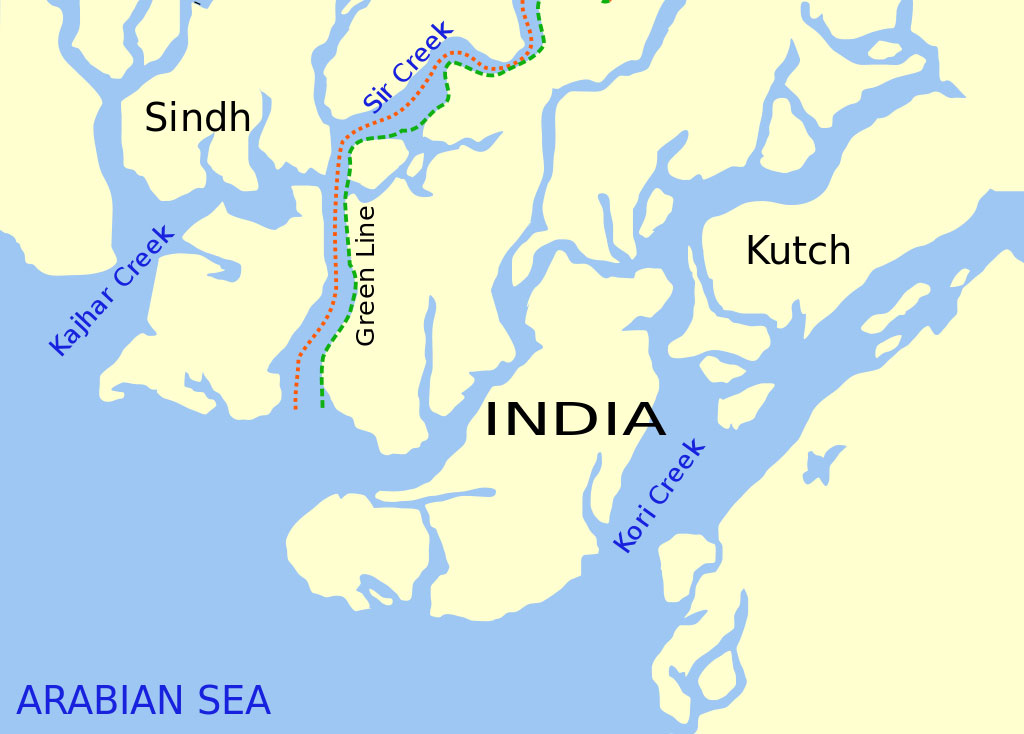 creek kriːk n (British English) A long narrow area of water that flows from the sea into the land.
creek kriːk n (British English) A long narrow area of water that flows from the sea into the land.
Wandsworth ⇒ A London borough in southwest London, part of Inner London.
Battersea ⇒ A district of South West London, England, within the London Borough of Wandsworth. It is located on the south bank of the River Thames, 2.9 miles (4.7 km) south west of Charing Cross.
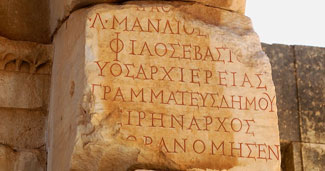 inscription ɪnˈskrɪpʃən n Something inscribed, especially words carved or engraved on a coin, tomb, etc.
inscription ɪnˈskrɪpʃən n Something inscribed, especially words carved or engraved on a coin, tomb, etc.
character ˈkærɪktə n One of a set of symbols, such as letters or numbers, that are arranged to express information.
something has never entered my head ⇒ something has never occurred to me.
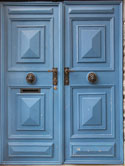 valve vælv n Archaic Either half of a double door.
valve vælv n Archaic Either half of a double door.
customary ˈkʌstəməri adj Commonly used or practised: usual
at first glance ⇒ At first sight.
thick with dust ⇒ Covered with a thick layer of dust.
array əˈreɪ n Things, people etc. arranged in some order.
miscellaneous ˌmɪsəˈleɪniəs adj Consisting of a number of different kinds: various, sundry, motley, mixed, varied
shroud ʃraʊd v To cut off from sight: close, hide, obstruct, screen, shut out
gaunt gɔːnt adj Having little flesh on the body: thin, lean, skinny, bony, lanky
 skeleton ˈskɛlɪtn n The internal structure composed of bone and cartilage that protects and supports the soft organs, tissues, etc.
skeleton ˈskɛlɪtn n The internal structure composed of bone and cartilage that protects and supports the soft organs, tissues, etc.
oblique əˈbliːk adj Angled at a slant: diagonal, biased, slanted
extinct ɪksˈtɪŋkt adj No longer existing; lost or especially having died out.
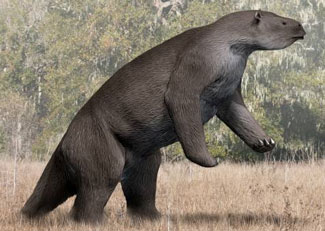 Megatherium ⇒ A genus of elephant-sized ground sloths endemic to South America, that lived from the Early Pliocene through the end of the Pleistocene.
Megatherium ⇒ A genus of elephant-sized ground sloths endemic to South America, that lived from the Early Pliocene through the end of the Pleistocene.
leak liːk n An unintended hole, crack, or the like, through which liquid, gas, light, etc., enters or escapes.
to wear away ⇒ To become broken, thin etc. as the result of use.
barrel ˈbærəl (Zoology) The trunk of a four-legged animal.
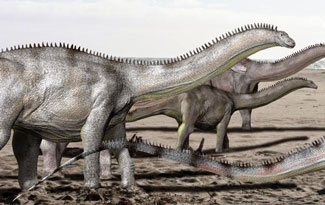 Brontosaurus ⇒ A very large plant-eating dinosaur common in North America in the late Jurassic.
Brontosaurus ⇒ A very large plant-eating dinosaur common in North America in the late Jurassic.
South Kensington ⇒ A district of West London in the Royal Borough of Kensington and Chelsea. With some of its easterly areas shared with the City of Westminster, the district is known as a popular tourist destination due to its density of museums and cultural landmarks.
palaeontological ˈpælɪˌɒntəˈlɒʤɪkəl adj Related to the science dealing with the life of past geological periods as known from fossil remains.
splendid ˈsplɛndɪd adj Brilliant or fine, esp in appearance: excellent, wonderful, marvellous
fossil ˈfɒsl n Remnant of an organism of a past geologic age preserved in the earth’s crust.
decay dɪˈkeɪ n Gradual deterioration to an inferior state; a falling into ruin.
to stave off ⇒ To keep off, preserve; delay.
extinction ɪksˈtɪŋkʃən n The fact of dying; utter destruction: death, demise, decease; liquidation, annihilation, extermination
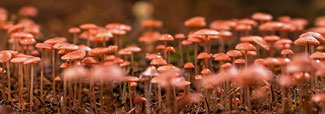 fungus ˈfʌŋgəs pl fungi ˈfʌŋgaɪ n Flower without leaves etc. growing on other plants or decaying matter.
fungus ˈfʌŋgəs pl fungi ˈfʌŋgaɪ n Flower without leaves etc. growing on other plants or decaying matter.
 reed riːd n The straight stalk of tall grasses, growing in marshy places.
reed riːd n The straight stalk of tall grasses, growing in marshy places.
bodily ˈbɒdɪli adv As a whole: altogether
deaden ˈdɛdn v To make less sensitive, active, energetic, or forcibleto make less sensitive, active, energetic, or forcible: weaken
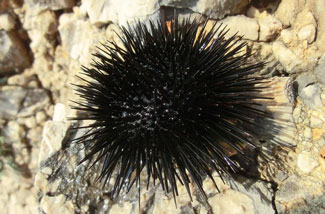 sea urchin ˈsiːˈɜːʧɪn n Any of various organism with a soft body enclosed in a round shell covered with long spines.
sea urchin ˈsiːˈɜːʧɪn n Any of various organism with a soft body enclosed in a round shell covered with long spines.
to stare about ⇒ To look carefully about.
to give no thought to something ⇒ Not to think about something
preoccupation pri(ː)ˌɒkjʊˈpeɪʃən n An idea or subject that someone thinks about most of the time: preoccupancy, absorption, engrossment
to recede from one’s mind ⇒ To become fainter; recede ri(ː)ˈsiːd v To move away gradually.
palaeontology ˌpælɪɒnˈtɒləʤi n The study of fossils to determine the structure and evolution of extinct animals and plants and the age and conditions of deposition of the rock strata in which they are found.
spectacle ˈspɛktəkl n A very impressive show or scene.
transverse ˈtrænzvɜːs adj Situated or lying across: crosswise
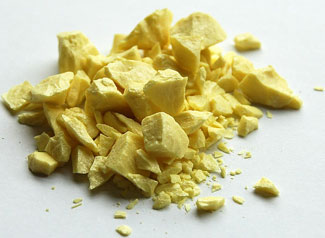 sulphur ˈsʌlfə n Pale yellow nonmetallic element occurring widely in nature, used in production of gunpowder.
sulphur ˈsʌlfə n Pale yellow nonmetallic element occurring widely in nature, used in production of gunpowder.
to set one’s. mind running on something ⇒ To start thinking about something intensively.
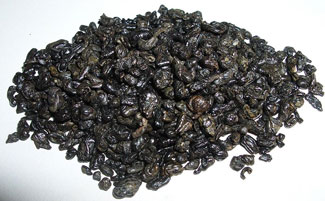 gunpowder ˈgʌnˌpaʊdə n Any of various explosive powders used to propel projectiles from guns, especially a black mixture of potassium nitrate, charcoal, and sulphur.
gunpowder ˈgʌnˌpaʊdə n Any of various explosive powders used to propel projectiles from guns, especially a black mixture of potassium nitrate, charcoal, and sulphur.
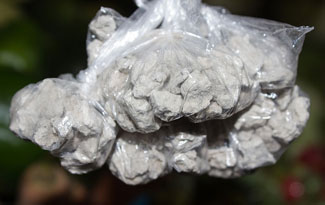 saltpeter ˈsɔːltˌpiːtə n Potassium nitrate, transparent white crystalline compound used in the manufacture of explosives, matches, fertilizers etc.
saltpeter ˈsɔːltˌpiːtə n Potassium nitrate, transparent white crystalline compound used in the manufacture of explosives, matches, fertilizers etc.
nitrate ˈnaɪtreɪt n A chemical that includes nitrogen and oxygen, often used as a a substance that helps plants grow.
deliquesce ˌdɛlɪˈkwɛs v To melt away.
a thought hangs in my mind ⇒ A thought doesn’t leave my mind.
to set up a train of thinking ⇒ To provoke a lot of thinking about.
 aisle aɪl n Passageway between rows of seats.
aisle aɪl n Passageway between rows of seats.
shrivel ˈʃrɪvl v Decrease in size, as with a loss of moisture: shrivel up, shrink, wither
vestige ˈvɛstɪʤ n Remnant that indicates the former presence of something: trace, remains
desiccated ˈdɛsɪkeɪtɪd v Completely dried out.
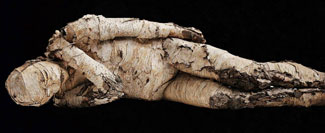 mummy ˈmʌmi n A body embalmed and dried and wrapped for burial.
mummy ˈmʌmi n A body embalmed and dried and wrapped for burial.
readjustment ˌriːəˈʤʌstmənt n A change that you make to it so that it is more effective or appropriate.
conquest ˈkɒŋkwɛst v Success in mastering something difficult: success, conquering, triumph
attain əˈteɪn v To gain as an objective: achieve
singularly ˈsɪŋgjʊləli adv In a way that is very noticeable or unusual.
smash smæʃ v To break something into pieces suddenly, noisily, and violently.
to be in one’s element ⇒ To be in suitable, preferred etc. surroundings.
corrode kəˈrəʊd v To consume gradually, as by chemical reaction, friction, etc: wear, wear away, gnaw, erode, fret
to incline to do something ⇒ To have a tendency to do something
linger ˈlɪŋgə v To stay in a place or be slow in leaving it, often out of reluctance: stay, remain
the more so ⇒ Used to say why something (such as an attribute or quality) applies to a greater degree or extent.
vague veɪg adj Not clearly perceptible: faint, dim, obscure, hazy, misty, bleary, cloudy, unclear
startle ˈstɑːtl v To surprise or frighten someone suddenly but not seriously: frighten, scare, terrify, alarm
Had it not been for her ⇒ If it hadn’t been for her.
at all ⇒ in any way; for any reason; to any extent; whatever.
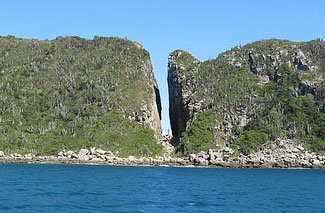 slit slɪt n A long straight cut or opening.
slit slɪt n A long straight cut or opening.
at last ⇒ After a long wait; finally.
 pit pɪt n Natural or artificial hole in the ground; a concealed hole in the ground used as a trap; the ground floor of a theater behind the stalls.
pit pɪt n Natural or artificial hole in the ground; a concealed hole in the ground used as a trap; the ground floor of a theater behind the stalls.
to go along ⇒ To proceed.
to be intent on doing something ⇒ To show serious and constant desire or attention.
diminution ˌdɪmɪˈnjuːʃən n The process of decreasing: reduction, decrement, diminishment
apprehension ˌæprɪˈhɛnʃ(ə)n n Fear that something bad or unpleasant is going to happen.
revive rɪˈvaɪv v Give new life or energy to or restore from a depressed, inactive, or unused state.
to call to mind ⇒ To remind.
peculiar pɪˈkjuːliə adj Not usual or normal.
patter ˈpætə v To speak or chatter glibly and rapidly.
struck with a sudden idea ⇒ An idea dawned upon me suddenly.
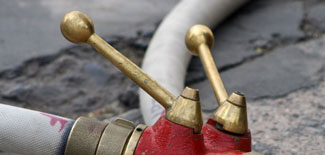 lever ˈliːvə n Projecting handle used to adjust or operate a mechanism.
lever ˈliːvə n Projecting handle used to adjust or operate a mechanism.
signal-box ˈsɪgnlˈbɒks n Cabin from which signals are given out to control the movements of railway trains.
clamber ˈklæmbə v To climb or crawl in an awkward way.
sideways ˈsaɪdweɪz adv Toward one side: sideway, sidewise
whimper ˈwɪmpə v To cry with soft, intermittent sounds: whine, pule
snap snæp v Break suddenly and abruptly, as under tension: crack
rejoin rɪˈʤɔɪn v To go back to a group of people, organization etc that you were with before.
 mace meɪs n Metal war club, often with spikes.
mace meɪs n Metal war club, often with spikes.
or so ⇒ (of quantities) Imprecise but fairly close to.
descendant dɪˈsɛndənt n A person considered as descended from some ancestor or race: offspring, scion
disinclination ˌdɪsɪnklɪˈneɪʃən n A feeling that you do not want to do something: reluctance, indisposition
persuasion pəˈsweɪʒən n He act of convincing someone to do something.
slake sleɪk v To satisfy; quench.
restrain rɪsˈtreɪn v To stop someone from doing something, often by using physical force.
brute bruːt n Savage animal: beast
 chapel ˈʃæpəl n Place of worship in an institution, such as a prison, etc.
chapel ˈʃæpəl n Place of worship in an institution, such as a prison, etc.
tattered ˈtætəd adj Worn or with hanging pieces of cloth.
char ʧɑː v To burn the surface of: scorch
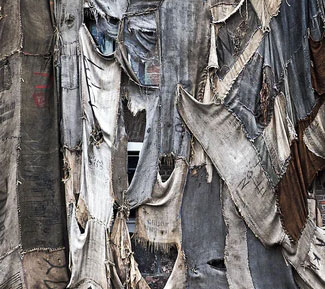 rag ræg A small piece of cloth: shred, tatter
rag ræg A small piece of cloth: shred, tatter
decay dɪˈkeɪ v To be slowly destroyed or broken down by natural processes: rotten
vestige ˈvɛstɪʤ n A small part or amount of something that remains when most of it no longer exists: trace, tincture, shadow
semblance ˈsɛmbləns n Likeness, image, or copy: touch, suggestion, trace, hint, tinge
warped wɔːpt v Bent out of shape usually by moisture.
clasp klɑːsp n Device for fastening: catch, hook, fastener
moralize ˈmɒrəlaɪz v To tell other people your ideas about right and wrong behaviour, especially when they have not asked for your opinion.
futility fju(ː)ˈtɪlɪti n Lack of effectiveness or success: uselessness, ineffectiveness, pointlessnes
sombre ˈsɒmbə adj Dark or dull in colour.
rot rɒtv To decay by a gradual natural process, or to make something do this: decay, degenerate, decompose
at the time ⇒ At a particular moment in the past; then.
Philosophical Transactions ⇒ A well-known scientific journal backed by United Kingdom.
to go up ⇒ To climb up.
damp dæmp adj Slightly wet, as from dew, steam, etc.
derelict ˈdɛrɪlɪkt adj Having been left alone: abandoned, deserted, forsaken
solemnly ˈsɒləmli adj Seriously and without any humour.
composite ˈkɒmpəzɪt adj Consisting of separate interconnected parts.
whistle ˈwɪsl v To make a high or musical sound by blowing air out through your lips.
Land o’ the Leal ⇒ A scotish song from a poem. An hypothetical land of happiness, loyalty, and virtue. Caroline Oliphant, Baroness Nairne, meant heaven in her exquisite song so called, and this is now its accepted meaning; leal liːl adj Faithful, h Honest, loyal.
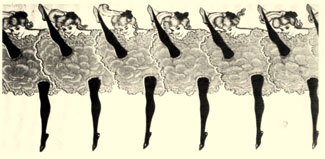 cancan ˈkænkæn A high-kicking dance of French origin performed by a female chorus line.
cancan ˈkænkæn A high-kicking dance of French origin performed by a female chorus line.
in part ⇒ To some extent or degree.
tail-coat ˈteɪlˈkəʊt n Formalwear consisting of full evening dress for men,
inventive ɪnˈvɛntɪv adj Apt at inventing, devising, or contriving and creating with the imagination.
to escape the wear of time ⇒ To avoid the effect of time.
immemorial ˌɪmɪˈmɔːrɪəl adj Starting longer ago than people can remember, or than written history shows.
camphor ˈkæmfə n Strongly scented Whitish substance with a strong, aromatic odor used in various medical and industrial purposes. It is found in wood of the Camphor laurel, a large evergreen tree found in Asia.
by chance ⇒ Unexpectedly and not planned.
hermetically hɜːˈmɛtɪkəli adv In an airtight manner.
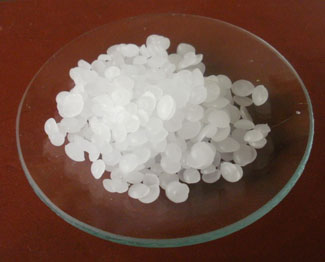 paraffin ˈpærəfɪn n A soft white substance used for making candles, made from petroleum or coal.
paraffin ˈpærəfɪn n A soft white substance used for making candles, made from petroleum or coal.
smash smæʃ v To break something into pieces suddenly, noisily, and violently.
accordingly əˈkɔːdɪŋli adv So; consequently.
volatile ˈvɒlətaɪl adj Chemistry evaporating readily at normal temperatures and pressures.
sepia ˈsiːpiə adj Of the dark brown colour.
belemnite ˈbɛləmˌnaɪt n Extinct cephalopods especially abundant in the Mesozoic era that had internal shells and that superficially resembled and are regarded as ancestors of the squids.
perish ˈpɛrɪʃ v To cease living: die, pass away, expire
fossilize ˈfɒsɪlaɪz v To turn into a fossil (the hardened remnants of an animal or plant found in a rock).
to be about to do something ⇒ To be ready to; to be going to do something
inflammable ɪnˈflæməbl v Easily ignited and capable of burning rapidly.
to break something down ⇒ To knock, hit something to the ground.
 crowbar ˈkrəʊbɑː n Straight bar of iron with the working end shaped like a chisel.
crowbar ˈkrəʊbɑː n Straight bar of iron with the working end shaped like a chisel.
elate ɪˈleɪt v To raise the spirits of: lift, inspire, elevate, animate, cheer, exhilarate
rust rʌst v To become corroded.
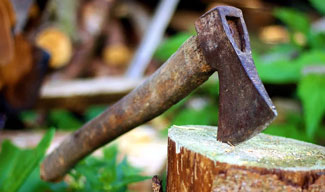 hatchet ˈhæʧɪt n A small, short-handled axe for use in one hand: axe, machete, tomahawk, cleaver
hatchet ˈhæʧɪt n A small, short-handled axe for use in one hand: axe, machete, tomahawk, cleaver
 rifle ˈraɪfl n A long gun which you hold up to your shoulder to shoot.
rifle ˈraɪfl n A long gun which you hold up to your shoulder to shoot.
 rust rʌst n A red or brown oxide coating on iron or steel caused by the action of oxygen and moisture.
rust rʌst n A red or brown oxide coating on iron or steel caused by the action of oxygen and moisture.
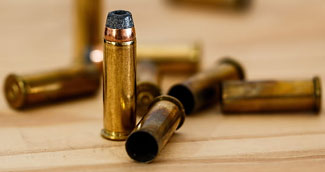 cartridge ˈkɑːtrɪʤ n Case containing the explosive charge for a gun.
cartridge ˈkɑːtrɪʤ n Case containing the explosive charge for a gun.
to rot into dust ⇒ To decay and turn into dust.
char ʧɑː v Burn to charcoal.
shatter ˈʃætə v To break suddenly into very small pieces, or to make something break in this way.
specimen ˈspɛsɪmɪn n Representative of a group or class: case, example, instance, sample
Polynesian ˌpɒlɪˈniːʒən adj Relating to or characteristic of Polynesia (is a subregion of Oceania, made up of more than 1,000 islands scattered over the central and southern Pacific Ocean) or its inhabitants.
Mexican ˈmɛksɪkən adj Relating to or characteristic of Mexico or its inhabitants.
Grecian ˈgriːʃən adj Relating to or characteristic of Greece or its inhabitants.
Phoenician fɪˈnɪʃɪən adj Relating to or characteristic of Phoenicia (a thalassocratic, ancient Semitic-speaking Mediterranean civilization that originated in the Levant, specifically Lebanon, but also including coastal Syria and north Palestine, in the west of the Fertile Crescent) or its inhabitants.
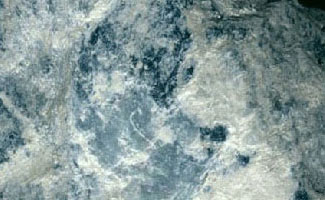 steatite ˈstɪətaɪt n Soapstone or other impure form of talc. a soft heavy compact variety of talc having a soapy feel; used to make hearths and tabletops and ornaments.
steatite ˈstɪətaɪt n Soapstone or other impure form of talc. a soft heavy compact variety of talc having a soapy feel; used to make hearths and tabletops and ornaments.
to take one’s fancy ⇒ To impress, to appeal to someone
to draw on ⇒ To come near.
wane weɪn v To lose strength: decline, fade, weaken, deteriorate, flag
ruinous ˈrʊɪnəs adj Falling to ruin; dilapidated.
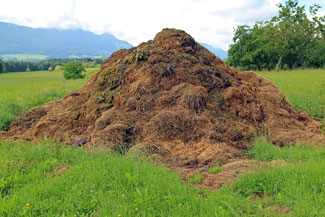 heap hiːp n A large, disordered pile of things: pile
heap hiːp n A large, disordered pile of things: pile
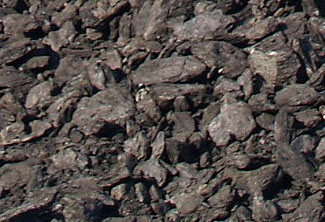 lignite ˈlɪgnaɪt n A soft, brownish-black coal in which the alteration of vegetable matter has proceeded further than in peat but not as far as in bituminous coal.
lignite ˈlɪgnaɪt n A soft, brownish-black coal in which the alteration of vegetable matter has proceeded further than in peat but not as far as in bituminous coal.
dynamite ˈdaɪnəmaɪt n A powerful explosive used in blasting and mining usually consisting of nitroglycerin and a nitrate, combined with an absorbent material that makes it safer to handle.
eureka jʊəˈriːkə int Exclamation of satisfaction on discovering something, solving a problem, finding a solution, etc: aha, bingo
to make an essay ⇒ To attempt; essay ˈɛseɪ/ n An initial attempt or endeavour.
dummy ˈdʌmi n An imitation of a real object.
to rush off ⇒ To depart hastily.
incontinently ɪnˈkɒntɪnəntli adv Very quickly. incontinent ɪnˈkɒntɪnənt adj Not restrained: wild, uncontrolled, wanton
 turf tɜːf v To spread with a surface layer of earth containing a dense growth of grass and its matted roots.
turf tɜːf v To spread with a surface layer of earth containing a dense growth of grass and its matted roots.
blaze bleɪz n A strong flame that burns brightly: blazing
refrain form rɪˈfreɪn v To hold oneself back, forbear.